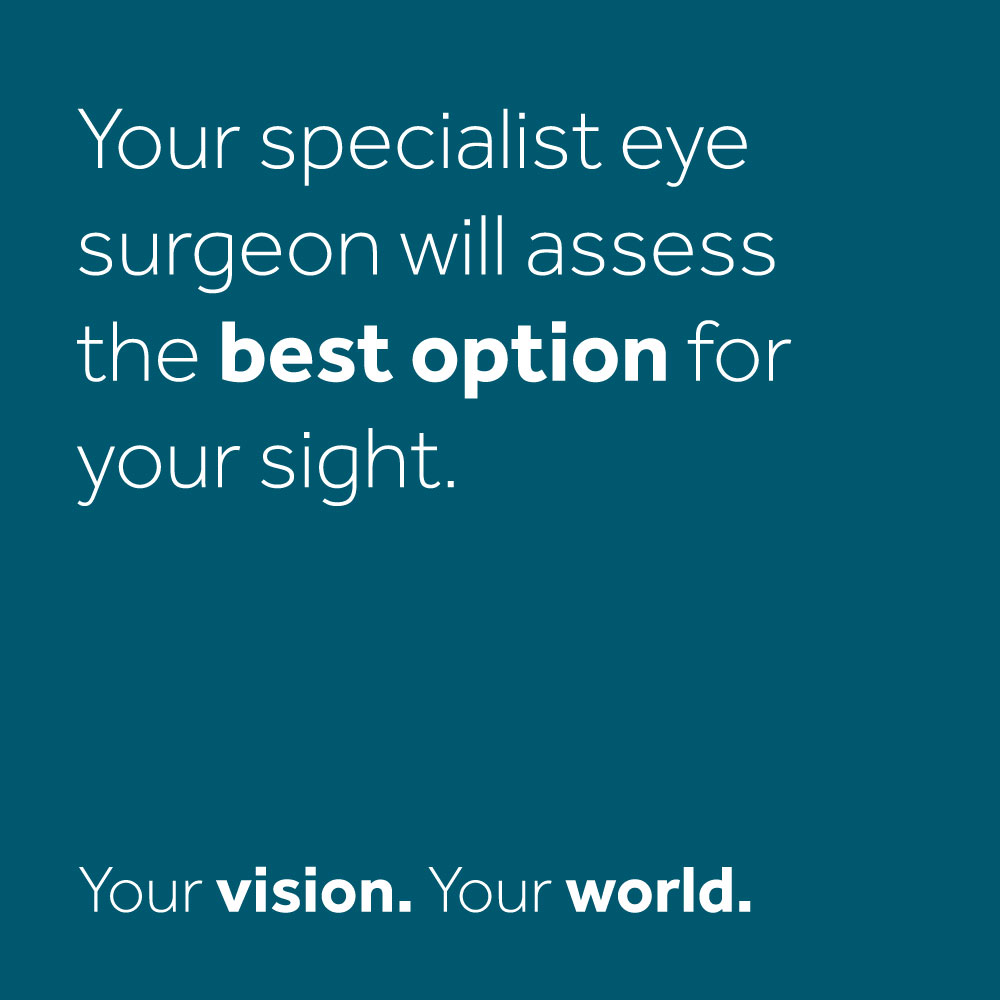The surgical procedure to replace the natural lens inside your eye with an intraocular lens (IOL) is quick and straightforward.
Surgery may differ slightly depending on the country and clinic that you visit for your procedure, but let’s cover what you can generally expect…
Before surgery
• Your specialist eye surgeon will assess the best option for your sight. During the assessment different measurements will be taken of your eyes and eyesight, your lifestyle will also be discussed to make sure the right solution is recommended for you.
• It is important to prepare your eyes for eye surgery. Having a healthy tear film will help your eye surgeon take accurate measurements from your eye to aid getting the best visual outcomes from surgery. Our AEON range of eye drops have been designed for this.

"If there is any evidence of ocular surface disease (dry eye disease), the patient is advised on dry eye treatment. We recommend a variety of artificial tears and gels, including AEON Protect Plus, for our patients, but we may also suggest warm compression of the lids, vitamin supplements, and a short course of steroids (if necessary)."
The day of surgery
• Before surgery you will be provided with a patient gown to change into for surgery.
• Your eye surgeon will administer ophthalmic eye drops to dilate your pupils (make them bigger), followed by sterilising the area around your eye and administering a local anaesthetic (typically in the form of eye drops). If required, a mild sedative is combined with this.
• Cataract surgery is a short procedure, which takes between 10 to 15 minutes to replace the natural lens with the new IOL. The procedure is painless and you will be simply asked to look at a bright light during the process.
• Following surgery, the eye will be covered with a protective dressing.
• You can usually return home, after a short rest. Someone must accompany you on the day of surgery to drive you home, as you cannot drive straightaway.
Recovery after surgery
• Your eyesight will begin to recover straight after surgery, the total recovery time varies from patient to patient.
• Full recovery may take a few weeks, but you can normally resume day to day activities after a couple of days.
• Please be patient as your eyes adjust to the new IOL.
"Many patients who have had cataract surgery suffer from dry eye. Treating this with artificial tears helps to improve post-surgical symptoms and increase patient satisfaction."
How can I give feedback about my cataract surgery?
Before surgery, your surgeon may ask for your email address and consent to register you on an online system called RayPRO that is used to gather feedback on your satisfaction, visual outcomes, and any eye procedures performed after your cataract surgery.
You will be emailed five short questionnaires over three years which will confidentially collect your feedback and present it to your surgeon anonymously, no one will be able to see your individual answers. Your surgeon and Rayner (the developer of RayPRO) will have access to aggregated data for the purpose of improving future products and services.
If you have any questions about RayPRO, please speak to your surgeon or clinic team.

"AEON Repair is one of the drops that has been shown to effectively aid healing post-surgery and is also preservative and phosphate-free."
Find out more about our AEON eye drops here



